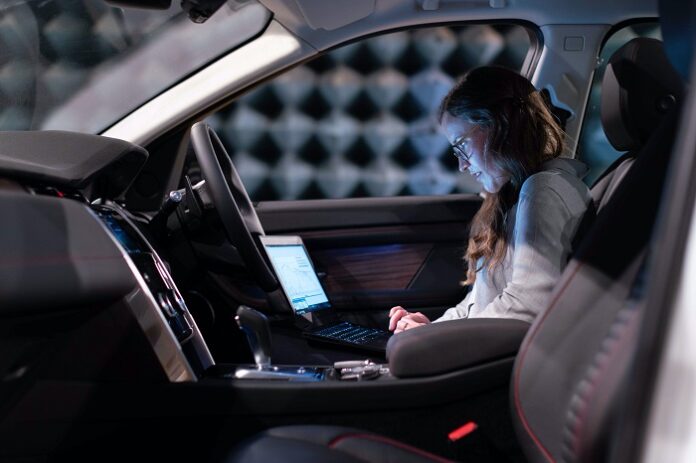Self-driving cars sound like something out of a science-fiction film, but they are being tested on UK roads, although they are currently not legally allowed on the roads.
Companies such as Tesla, Google, Audi, and Ford have all tested out the latest technology with the view to making them commonplace on our roads. So, what are self-driving cars, and how safe are they?
What are self-driving cars?
Self-driving cars are also known as driverless cars or autonomous cars, which means they can drive according to their environment without human intervention.
Self-driving cars can navigate to a predetermined destination without the intervention of humans. The vehicle is not required to have a driver or passenger present when it is moving.
How do self-driving cars work?
The technology behind self-driving cars is vast and complex. These automobiles use a combination of AI, sensors, cameras, and radars to drive safely.
By strategically siting sensors around the body of the car, the integrated AI system is able to create a map of the surroundings including other vehicles in the vicinity.
These work in conjunction with video cameras which act as the eyes of the car to locate traffic lights, take note of road signs and watch out for pedestrians.
Lidar, which stands for light detection and ranging, sensors bounce light pulses off various objects surrounding the car to help measure distances and identify road markings.
All of this is fed into the software which then instructs the car’s actuators which control the braking, acceleration, and steering.
What are the dangers of a self-driving car?
In the UK, 95% of driving accident deaths are due to human error. This does not mean that self-driving cars are safe, however. As with all types of machinery, there is a risk that the systems will fail. For example, the automatic driving system could crash which could lead to the car being involved in an accident.
There is also a risk of hacking as the car relies on software. Hacking could leave any passengers in the car vulnerable should the hacker have ill intentions.
If you find yourself in an accident with a self-driving car, you may be able to make a no-win, no-fee claim. Although it is unclear whether the responsibility lies with the insurers or the manufacturers, the 2022 Law Commission compiled a report to look into this matter.
What are the advantages?
The eradication of human error would reduce the number of fatalities on the roads, making them a safer place for both drivers and pedestrians. Safer roads can only be a benefit for wider society.
Self-driving cars would also allow disabled or elderly people greater independence. Where people may have had to give up driving or never been allowed to drive in the first place, they tend to rely on family and friends or public transport to get out and about. Self-driving cars would allow them to have more autonomy over their lives whilst being safe.





